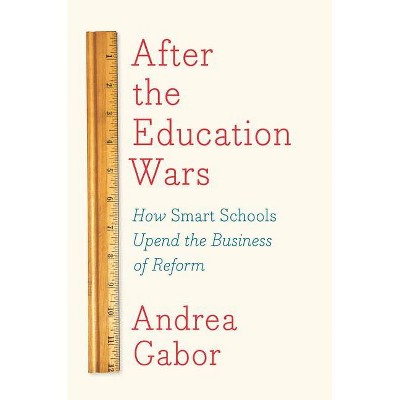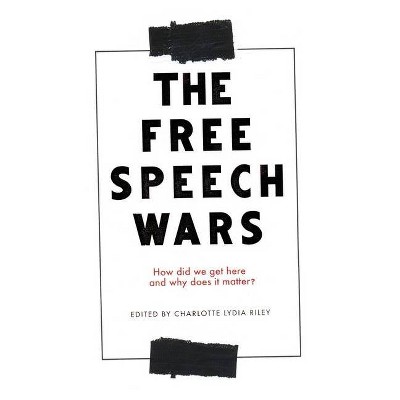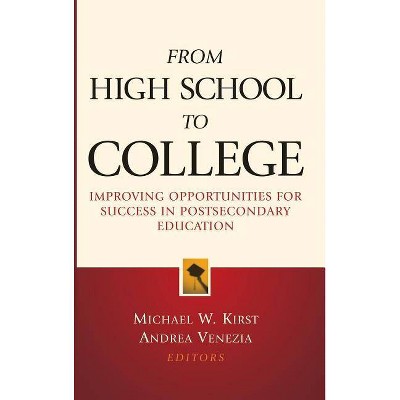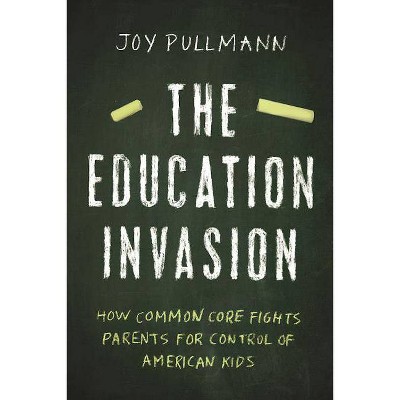After the Education Wars - by Andrea Gabor (Hardcover)

Similar Products
Products of same category from the store
AllProduct info
<p/><br></br><p><b> About the Book </b></p></br></br>A bestselling business journalist critiques the topdown approach of popular education reforms and profiles the unexpected success of schools embracing a nimbler, more democratic entrepreneurialism.<p/><br></br><p><b> Book Synopsis </b></p></br></br><b>"The education wars have been demoralizing for teachers. . . . <i>After the Education Wars</i> helps us to see a better way forward."<br>--Cathy N. Davidson, <em>The New York Times Book Review</em> <p/>"<i>After the Education Wars</i> is an important book that points the way to genuine reform."<br>--Diane Ravitch, author of <em>Reign of Error</em> and <em>The Death and Life of the Great American School System</em> <p/>A bestselling business journalist critiques the top-down approach of popular education reforms and profiles the unexpected success of schools embracing a nimbler, more democratic entrepreneurialism</b><br><p>In an entirely fresh take on school reform, business journalist and bestselling author Andrea Gabor argues that Bill Gates, Eli Broad, and other leaders of the prevailing education-reform movement have borrowed all the wrong lessons from the business world. <em>After the Education Wars</em> explains how the market-based measures and carrot-and-stick incentives informing today's reforms are out of sync with the nurturing culture that good schools foster and--contrary to popular belief--at odds with the best practices of thriving twenty-first-century companies as well.</p> <p>These rich, detailed stories of real reform in action illustrate how enduring change must be deeply collaborative and relentlessly focused on improvement from the grass roots up--lessons also learned from both the open-source software and quality movements. The good news is that solutions born of this philosophy are all around us: from Brockton, Massachusetts, where the state's once-failing largest high school now sends most graduates to college, to Leander, Texas, a large district where school improvement, spurred by the ideas of quality guru W. Edwards Deming, has become a way of life.</p> <p>A welcome exception to the doom-and-gloom canon of education reform, <em>After the Education Wars</em> makes clear that what's needed is not more grand ideas, but practical and informed ways to grow the best ones that are already transforming schools.</p><p/><br></br><p><b> Review Quotes </b></p></br></br><br><p><strong><strong>Praise for <em>After the Education Wars</em>: <br /></strong></strong><em>After the Education Wars</em> offers a series of powerful counternarratives that challenge the deeply flawed, corporate-based school reform movement. . . . this is a useful, and exceedingly timely, book.<br />--<strong><em>Democracy & Education</em></strong><br /><br />In her book <em>After the Education Wars</em>, Andrea Gabor shows how business reforms have hurt public education, impeded teaching and learning, and alienated students and families. Just as important, she highlights schools that have pushed back against privatization and the relentless focus on accountability by 'creating a climate of trust and respect' among educators and local communities.<br />--<strong>American Educator</strong><br /><br />The education wars have been demoralizing for teachers. . . . <em>After the Education Wars</em> helps us to see a better way forward.<br />--<strong>Cathy N. Davidson, <em>The New York Times Book Review</em></strong><br /><br />This book belongs alongside Diane Ravitch's works on education, and Dale Russakoff's <em>The Prize</em>. It will appeal to serious readers seeking to understand the current state of education reform, how it's practiced, the pitfalls, and what does and doesn't work.<br />--<strong><em>Library Jounal </em>(Starred Review)</strong><br /><br />[<em>After the Education Wars</em> is] a truly excellent and thoughtful book . . . that should be read by everyone with an interest in our schools.<br />--<strong>George Akerlof, Nobel Laureate in Economics, 2001</strong><br /><br />I hope you will buy and read Andrea Gabor's <em>After the Education Wars</em> . . . . Gabor's chapter on New Orleans is a masterpiece of journalism and investigative reporting.<br />--<strong>Diane Ravitch, author of <em>Reign of Error</em> and <em>The Death and Life of the Great American School System</em></strong><br /><br />A must-read for educators, superintendents, and policy leaders.<br />--<strong>Rakesh Khurana, professor of leadership development, Harvard Business School, and author of <em>From Higher Aims to Hired Hands</em></strong><br /><br /> Gabor convincingly argues that teachers, principals, and community members have already answered many of the educational questions with which so many continue to grapple. Read this book. Again and again, read this book.<br />--<strong>Noliwe Rooks, director of American studies, Cornell University, and author of <em>Cutting School</em></strong><br /> <br /> Drawing on a fascinating and diverse set of cases, Andrea Gabor reflects on how schools in the United States can provide a quality public education for all.<br />--<strong>Howard Gardner, John H. and Elisabeth A. Hobbs Professor of Cognition and Education, Harvard Graduate School of Education, and author of <em>The Disciplined Mind</em></strong><br /> <br /> This book belongs on the bookshelf of anyone interested in genuine education reform.<br />--<strong>David L. Kirp, professor of public policy, UC Berkeley, and author of <em>Improbable Scholars</em></strong><br /> <br /> A radical departure from the top-down models educational reformers have been imposing on schools for a generation.<br />--<strong>Peter Cappelli, professor of management, the Wharton School, and author of <em>Will College Pay Off?</em></strong><br /> <br /> A seamless, searing critique of paradigm encroachment and an enlightened path forward.<br />--<strong>Samuel E. Abrams, director, National Center for the Study of Privatization in Education, and author of <em>Education and the Commercial Mindset</em></strong><br /> <br /> Compelling and highly readable.<br />--<strong>Richard D. Kahlenberg, author of <em>Tough Liberal</em></strong><br /> <br /><strong>Praise for Andrea Gabor's <em>The Capitalist Philosophers</em>: </strong><br />Well-balanced portraits...[Gabor] has a good eye for the revealing details.<br /><strong>--<em>Harvard Business Review</em></strong><br /><br />A sweeping account of management in the twentieth century.<br /><strong>--<em>Publishers Weekly</em></strong><br /><br /><strong>Praise for Andrea Gabor's <em>The Man Who Discovered Quality</em>: </strong><br />Accessible and enjoyable.<br /><strong>--<em>Business Week</em></strong><br /><br />A must for all business collections.<br /><strong>--<em>Library Journal</em></strong><br /><br /><strong>Praise for Andrea Gabor's <em>Einstein's Wife</em>: </strong><br />Combines excellent research with lively writing.<br /><strong>--<em>Publishers Weekly<br /></em></strong></p><br><p/><br></br><p><b> About the Author </b></p></br></br><b>Andrea Gabor</b>, the Bloomberg chair of business journalism at Baruch College/CUNY, is a former staff writer and editor at <em>U.S. News & World Report</em> and <em>Businessweek</em>. Gabor has written for the <em>New York Times</em>, <em>Los Angeles Times</em>, <em>Smithsonian</em> magazine, <em>Harvard Business Review</em>, <em>Fortune</em>, and the <em>Village Voice</em>. She lives in New York City.
Price History
Price Archive shows prices from various stores, lets you see history and find the cheapest. There is no actual sale on the website. For all support, inquiry and suggestion messagescommunication@pricearchive.us




















